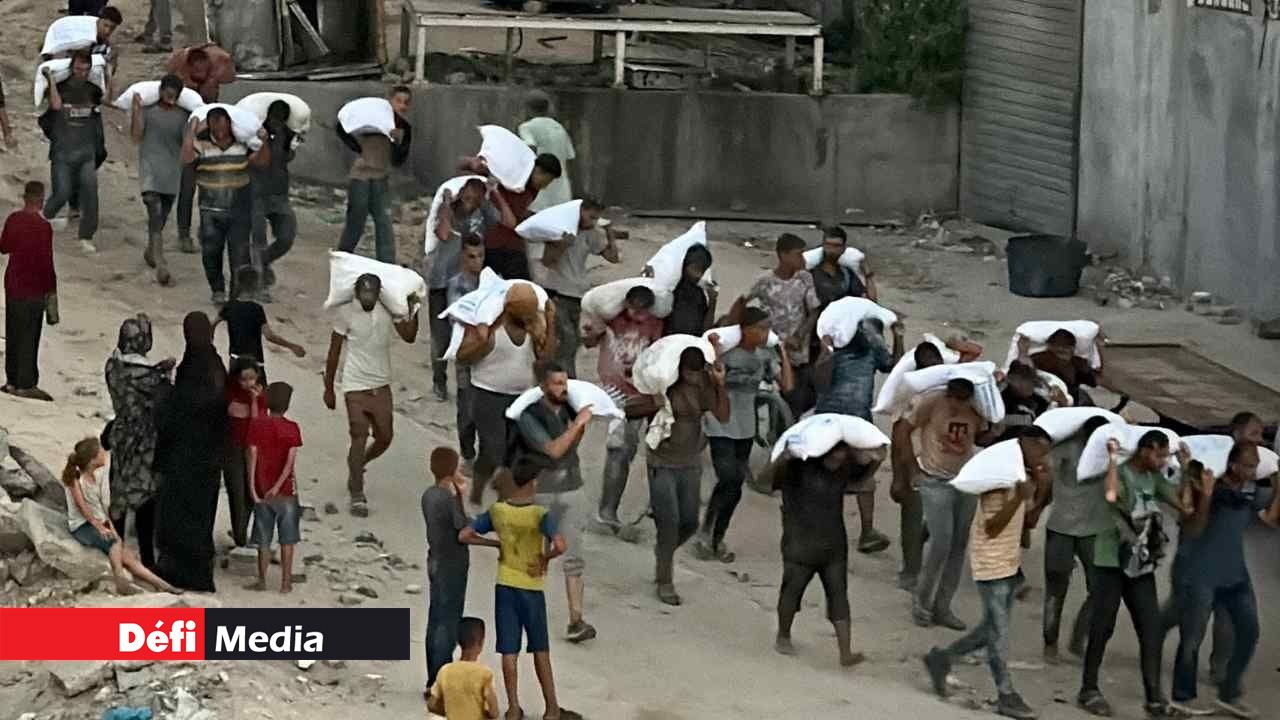A Palestinian Woman 'Devastated' That Her Body Image Is Used to Deny Famine in Gaza

When Faiza Najjar fled Gaza for Canada last year, she had to leave behind four of her ten children. Powerless, she watched from afar as the situation in the Palestinian territory deteriorated due to food shortages.
After months of efforts to bring them to safety, the Canadian-Palestinian woman was finally reunited in July with her four daughters, all in their twenties, and their seven grandchildren. However, this relief was quickly overshadowed by ridicule directed at her.
Online images of their reunion at Toronto airport turned into a humiliating situation for her. Pro-Israeli accounts mocked her physical appearance, using it to deny the widespread malnutrition observed in Gaza.
"As a mother, this truly devastated me," Faiza Najjar told AFP, who has been living in suburban Toronto for just over a year.
A viral video, which has been viewed over 300,000 times across various platforms, sparked comments suggesting, incorrectly, that this 50-year-old woman had just left Gaza.
"Did you see what this woman looks like?" one commenter asked, implying she was not undernourished.
The UN estimates that over two million Palestinians are at risk of "widespread famine" in this devastated territory, where Israel is criticized for severely controlling humanitarian aid entry. Images of sick, emaciated Palestinian children have sparked international outrage.
Israel denies causing famine and claimed in late July that it is not responsible for the chronic food shortages.
The virtual comments targeting Faiza Najjar and her family are part of a broader trend. Channel 14 hosts, a right-leaning television channel sometimes referred to as the Israeli version of Fox News, mocked "obese" mothers accused of stealing food from their children.
Faiza Najjar, who never claimed to have suffered from hunger in Gaza, expressed her shock at being part of this disinformation campaign.
"Some people still have the audacity to mock them, while they have suffered, lost everything, and nearly faced death," she sighed, discouraged, as she spoke of her daughters. They and their children "slept in tents, hungry, under the sound of bombs."
Her grandchildren have also faced online ridicule for their seemingly healthy appearance.
According to Faiza Najjar, her family received medical care and was nourished before flying to Canada.
Mert Can Bayar, a researcher at the University of Washington, stated that the posts targeting Faiza Najjar are "just one element among many" contributing to this misleading online discourse.
Last month, the mayor of Toronto removed a video from Instagram showing her welcoming Palestinians to Canadian soil due to derogatory comments made against their family.
Once again, people's physical appearances were used to refute claims of malnutrition and famine in Gaza.
Earlier this month, Grok, the embedded chatbot on X, sparked a wave of similar reactions when it mistakenly claimed that a recent AFP photo showing a malnourished girl in Gaza dated back to 2018 and was taken in Yemen.
This echoes false claims that emerged weeks after the war began, suggesting Palestinians staged their injuries, noted Valerie Wirtschafter, a researcher at the Brookings Institution.
This phenomenon "distracts from the real humanitarian damages," she explains.
When her family was separated, Faiza Najjar lived in fear of one day learning of her daughters' deaths.
Even though they are now in Canada, her sons-in-law remain trapped in Gaza, where 227 people, including 103 children, have reportedly died of hunger, according to the Hamas-controlled health ministry.
"I just want the world to know that the crisis is very real," Faiza Najjar asserts. "Denying it would be fatal."
